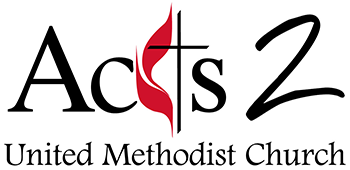Watch & Listen to Acts 2 Sermons
Watch, listen, and download past Acts 2 sermons.
Looking for something specific?
Recent Sermons
Love is more than a feeling—it’s something we put into action. In this sermon, Pastor Mark invites Acts 2 families to share how they have answered God’s call to embody…
When we're struggling, hope can seem distant and even unattainable. The hope that Jesus brings, though, comes into the darkness with us and shines a light.
As the season of Advent begins, this four-week sermon series is to help us move from merely living an “almost” life to the full, altogether life God has for us in God’s kingdom.
When they encountered Jesus’ empty tomb, the women who came there felt terror and amazement and ran away. Eventually, though, they told others of Jesus rising from the dead. At the end of the Gospel of Mark, we are faced with the same question they faced: how will we respond to the Good News of Jesus?
When Jesus describes wars, suffering, and starts falling from the sky, it can be confusing and even scary. But when he teaches about these things, he’s actually preparing the disciples for the cross and resurrection. As we read those words today, they help us to bear witness to the cross and live the resurrection in our daily lives.
When we read the Gospel of Mark, we encounter Jesus in all of his power, and through that encounter, he invites us to live in a new kind of reality--the Kingdom of God.
Most of us avoid suffering when we have the choice, but Jesus actually chose to serve and to suffer for our sake. In doing so, he showed us what true greatness really looks like.
Jesus invites us to follow him. And while it’s simple, it’s not easy. To follow Jesus is to find ourselves face to face with the needs of the world and the evils of the world. Yet he also not only promises that he’ll always be with us, but that he’ll send us with companions on the journey as well.
Jesus’ life is good news for the world, and in the Gospel of Mark, we learn what that good news means for our everyday lives. In this series, we’ll explore how we can experience his good news for ourselves and be part of his mission to share it with the world.
If Jesus had an iPhone, how might he use it? By looking at his life and teaching, we can learn he would have us do with our technology so that we can be fully present, attentive, and loving to God and the people around us.
As technology progresses, it’s getting harder and harder to know what’s real and what’s generated by a computer. But Jesus teaches us that discerning the truth is enormously important because, as he said, the truth will set us free.
Since the beginning of time and by the third page of the Bible, humanity has struggled with the relationship between God, knowledge, control, and temptation. When we get it wrong, the results are catastrophic.
The downsides of social media are never far away. . . our teens are constantly confronted with images of people who somehow seem prettier, richer, more fashionable, and more popular. Social media takes the normal anxieties of teenage life and hypercharges them.
How do we relate to God and one another in this digital age? We hope you will join us this week as we look for God’s answer together to the real problem of being “Alone Together.”
Technology enables us to do amazing things. Yet despite these advances, our well-being is diminishing by many measures. Too often, heavy device use leaves us feeling less human when we’re done. Jesus, however, came to give us abundant life, and he shows us how we can begin to reclaim our humanity: putting relationships before technology.

